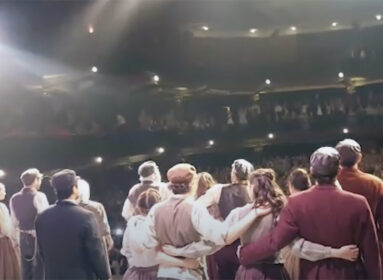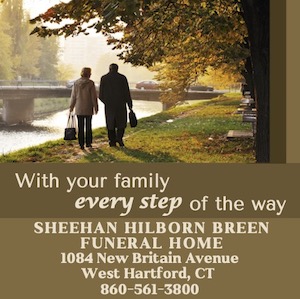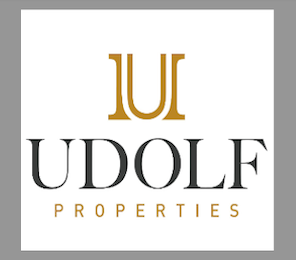 Many Patinkin is a Tony and Emmy award-winning actor of stage and screen – as well as a noted singer and interpreter of Stephen Sondheim and other great American songwriters. Now, the master songman is coming to Connecticut. He will bring his critically acclaimed theater concert to the Warner Theatre in Torrington for one performance on Saturday, Dec 8.
Many Patinkin is a Tony and Emmy award-winning actor of stage and screen – as well as a noted singer and interpreter of Stephen Sondheim and other great American songwriters. Now, the master songman is coming to Connecticut. He will bring his critically acclaimed theater concert to the Warner Theatre in Torrington for one performance on Saturday, Dec 8.
Patinkin won a Tony Award for his 1980 Broadway debut as Che in Evita and was again nominated in 1984 for his starring role in the Pulitzer Prize winning musical Sunday in the Park With George. He returned to Broadway in the Tony Award-winning musical The Secret Garden (1991) and appeared as Marvin in Falsettos (1992). He won a 1995 Emmy Award for his performance in the CBS series Chicago Hope, and recently starred in the CBS series Criminal Minds. He is now in his second season playing CIA Division Chief Saul Berenson in the Emmy Award-winning Showtime series Homeland. Feature film credits include: The Princess Bride, Yentl, Ragtime, and True Colors.
In 1989, Patinkin, who attended New York’s Julliard School, began his concert career at Joseph Papp’s Public Theater. Since then he has toured extensively, appearing to sold-out audiences all over the world. In 1990 he released his second solo album entitled Mandy Patinkin In Concert: Dress Casual.
In 1998, he debuted his most personal project, Mamaloshen, a collection of traditional, classic and contemporary songs sung entirely in Yiddish. The recording of Mamaloshen won the Deutschen Schallplattenpreis (Germany’s equivalent of the Grammy Award). The stage production of Mamaloshen was performed on and off–Broadway, and has toured throughout the country. He continues to sing Yiddish songs in many of his concerts.
Born in Chicago, Patinkin grew up in a middle class Conservative Jewish home. He has been involved in a variety of Jewish causes and cultural activities, and has written introductions for two books on Jewish culture, “The Jewish American Family Album” by Dorothy and Thomas Hoobler, and “Grandma Doralee Patinkin’s Holiday Cookbook: A Jewish Family’s Celebrations” by his mother, Doralee Patinkin Rubin.
Q: “Homeland” is based on the Israeli hit TV show “Hatufim.” Like that show, “Homeland,” at least at the outset, dealt with the effects of long-term captivity at the hands of terrorists on a soldier – like Gilad Shalit. Has the experience of being in “Homeland given you some insight into what Israeli soldiers go through? Has it influenced your perspective on Israeli society?
A: Oh my God, that’s an enormous question. You know, we did some shooting in Israel at the beginning of the second season and, while we were over there, I met with Gilad Shalit. He came to the set and it was a most moving experience to be with him. I got to Israel a few days before we started shooting and I said I wanted to go immerse myself in the conflict as much as possible. So I went all over the West Bank. I went to Hebron…I went to Ramallah…I went everywhere and immersed myself in the real life conflict before I went to film our fictionalized version of the conflict. And I was deeply moved in those first several days by everything I witnessed. I was asked to speak at a Peace Now conference that was happening at the time and I ended up reflecting on my experiences —because I had also been in Hebron 13 years earlier when we were pregnant with my first son and I was in Israel doing research for Yentl and it was a very powerful experience.
I walked away from that conference and walked onto the set of Homeland; and in my heart I carried what I witnessed and the conversations that I had on both sides of the fence — on Israel’s far liberal side and far conservative side. And I have family on both sides; I have family that are not religious and I have family that are religious, and I have family who live in the settlements there.
I’m someone who believes in a two-state solution. I don’t know how to achieve it — it’s a complicated matter – but I simply know in my heart that what exists at this moment is not sustainable for anyone – not for the Israelis and not for the Palestinians and not for the world at large. And so the question is how do we fix what’s broken.
So, I think it’s our responsibility as Jews to do everything we can to educate ourselves to understand both sides of the situation. You really have to go there to witness the situation and you will know instantly that it’s not a sustainable situation for either side, and we all must commit the rest of our lives to tirelessly working towards peace and towards a solution where both people on both sides have freedom, justice and dignity. If everyone does the littlest bit on their own it will happen.
Q: I read somewhere that you describe yourself as “Jewish with a dash of Buddhist” – is that an accurate description?
A: Yes, I’m a Jew-Bu. My wife’s brother is a Buddhist monk who brought Buddhism into our lives and I started meditating a number of years ago and I love it. It’s a very quieting part of my life. And so, I’m a Jew-Bu. I love Judaism and I love Buddhism and I practice both.
Q: And you describe yourself as “spiritual, but not religious” – also true?
A: Right. I’m in both camps. I’m not an Orthodox Jew; I don’t keep kosher. And I’m not an ‘Orthodox’ Buddhist; I don’t sit for endless hours like they do and I don’t do all the various long ceremonies. I’ve created my own version of both religions. I don’t even think of them as religions – I think of them as practices. I use the word “practice” because I think that’s the essence of what it entails – all of our lives is about practicing anything we wish to achieve.
I have my own ritual, my own prayers that I say during my mediation; they include Hebrew prayers, Shakespeare’s words, e.e. cummings’ poems, Sondheim’s lyrics, Oscar Hammerstein’s words. Every day, I say the names of everyone whom I’ve ever known who has passed on, because Oscar Hammerstein wrote in the musical “Carousel,” if there’s one person on earth who remembers you it isn’t over. And rather than just wait for the remembrance service on Yom Kippur, every day of my life I say the names of all the people I ever knew [who have passed on], sometimes more than once. Because I just like the feeling that they’re in my mind.
One of the things in Buddhism that my brother-in-law told me once is that our actions are the ground we walk on. I just love that. And I try to make my life — what I do and what I say — the ground that I walk on.
Q: You recently did a show on Broadway with Patti Lupone, your co-star in “Evita”. You’ve come a long way with Patti Lupone. Were you together at Julliard?
A: I created a show for the two of us and we’ve been doing it for 10 years. We take it all over the world. Now, I’m working on a new piece. I adore Patti. She’s my dearest, oldest friend.
Actually, she didn’t know me at Julliard, but I ushered for her when she was in the first acting company at Julliard. She was in group one and I was in group five. I was in the same class as Bill Hurt – William Hurt. John Houseman asked us to usher for the first year acting company. So I saw Patti on stage at the Good Shepherd Faith Church where they performed, which is right next to the Julliard School at Lincoln Center. Then I found out that we were both cast together in Evita and we became lifelong friends.
Q: Of all the many wonderful things you’ve done, my all time personal favorite is “Mamaloshen.” How did you come to make an album and a Broadway show of Yiddish songs?
A: It’s my all time favorite as well. Years ago, Joe Papp [the late director of New York’s renowned Public Theater] called me up and asked me to do a song for a benefit for YIVO [YIVO Institute for Jewish Research] at the Shubert Theater. He said, “You need to sing a Yiddish song.” And I said, “I don’t know one.” And he said, “What?! It’s about time you learned one.” So, he sent me over the song “Yosele, Yosele.” He had a healthy ego: “Yosel” is Yiddish for Joseph. I loved Joe — he was like my father. He was the most important person in the world to me. He signed the ketubah at my wedding.
So, I did this song and I just loved it. There was something about singing those Yiddish words in that theater that night that just touched me in a very deep way. It wasn’t as if it held an echo of a childhood memory, because I didn’t hear it as a child growing up. My father sang one little Yiddish song that I put on the record to honor him. But it wasn’t rekindling anything, there was just sort of a DNA connection to these sounds and to my ancestors. So, Joe came over one night for Shabbos dinner and I had recorded Yosele Yosele which I played for him, and he looked at me and said, “You must learn this music. This is your job.” And I knew what he meant. He meant that for whatever reason I’ve been given the privilege to sing and that it’s my turn to get in the long line of people who’ve been carrying on this tradition – a tradition that was almost decimated in World War II when so many voices were silenced. Now, it was my job to get at the end of that line and pass this tradition on to whoever would listen.
So, I promised Joe that I would do that, and I set about doing that for a number of years. Then I made “Mamaloshen,” and it was very important for me to keep it alive so I do it every year anywhere I can. I’ll be doing it in New York in a private home at a benefit for Israel’s Arava Institute in November. I just try to keep it going because I never want to lose it and anytime I sing it I just feel connected to everyone.
Q: How did you manage to learn Yiddish?
A: Several people helped me learn my Yiddish songs and were my guides: Henry Zapoznik, the highly regarded Yiddish archivist, Zalman Mlotek [artistic director of the National Yiddish Theater-Folksbiene], his parents were Yosel and Chana Mlotek [experts on Yiddish and Yiddish music]. His mom and dad, who were in their late 80s at the time, came over to my studio, along with Moshe Rosenfeld, who was their cousin from Toronto, and before I went into the studio they made sure that the way I pronounced the words was okay. So, these five people were in the room with me — Yosel and Chana, Zalman, Moishe and Henry Zapoznik – and Henry asked me to sing the song to show what I was going to do in the recording studio. I did and an argument broke out between the five of them over the way I was pronouncing a word – which essentially came down to the difference in pronunciation between “po-tay-to” and “po-tah-to” — only it was a Yiddish word. They were arguing over which was the correct pronunciation. What was so moving to me was that the core essence of that argument was all about how their ancestors said it on their particular street corner. They were trying to preserve that memory and that was very moving. It was not just an idle discussion; it was really passionate.
Yiddish is such a lyrical language. You hear a word and you don’t even need to know what it means. You just know what it means.
Q: Would you consider doing something in Hebrew down the road?
A: I’m actually working on a multi-cultural program with my friend Hannah Khouri, an Arab-Israeli violinist, and Udi Bar-David, an Israeli cellist, and a Syrian drummer named Hafez. I’m learning Arabic songs and I will also be singing Yiddish songs and Hebrew songs…as well as some Sondheim – American music. We’re giving birth to this in March of 2013 and we hope to take it all over the world. The point is to sing the music of each others lives rather than the frustrations of each other’s lives.
Q: What kind of music will you be singing at the Warner Theater on Dec. 9?
A: It’s sort of my smorgasbord concert. It’s my Dress Casual concert with a lot of new material that I’ve been working on. So, for those who’ve seen one of my Dress Casual concerts, it won’t be things that you’ve heard before. It includes Yiddish, Sondheim, Randy Newman, Yip Harburg, Oscar Hammerstein – and sometimes I change my mind at the last minute. Paul Ford. Who I’ve been with for 24 years, will be on the piano.
It will just be myself up there singing the words of all these gifted geniuses. I get to be their mailman delivering the wishes that they have for themselves and the world. It’s a great comfort to me always to be in the theater with an audience who wants to hear their thoughts. It’s a comfort to have company when you’re listening to things you like to hear. So, that’s what the evening is — a good way to get away from your troubles for a few minutes, away from the world, and listen to some fun tunes.
For information on Many Patinkin in Concert at the Warner Theater call (860) 489-7180 or email
Comments? Email judiej@jewishledger.com.








 Southern New England Jewish Ledger
Southern New England Jewish Ledger









